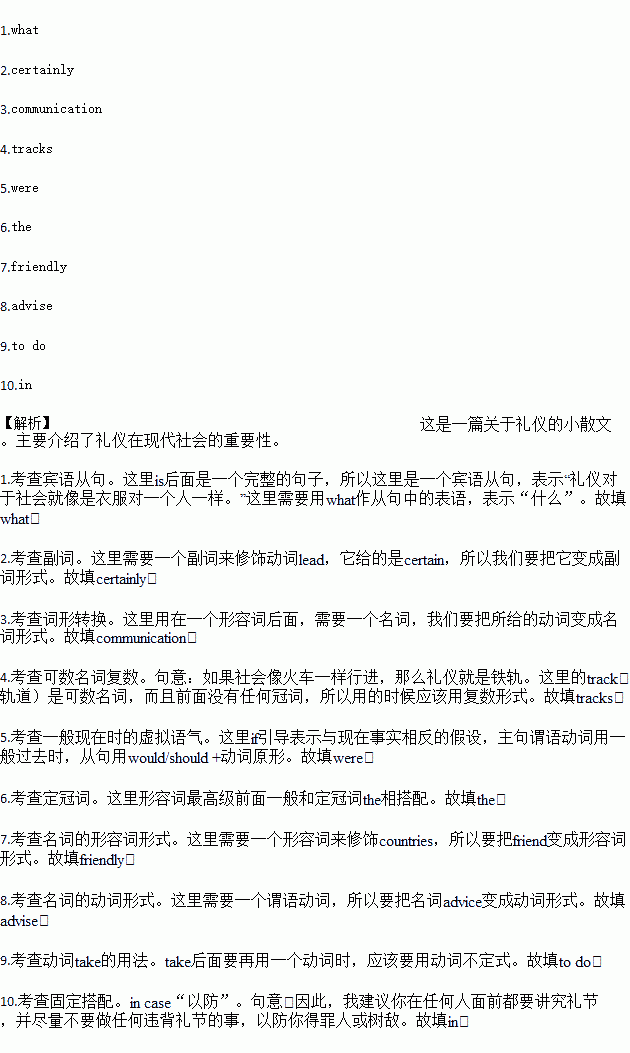题目内容
Etiquette(礼仪)to society is1.clothing is to the individual. Without clothes men would go in shameful nudity which would2.(certain) lead to the corruption of morals; and without etiquette society would be in a pitiable state and the necessary3.(communicate) between its members would be disturbed by needless offences and troubles.
If society moved like a train, the etiquette would be the4.(track), along which only the train could go forth; if society5.(be)a state coach, the etiquette would be the wheels, on which only the coach could roll forward.
The lack of etiquette would make6.best friends turn to be the most decided enemies and the 7.(friend) countries declare war against each other. We can find many examples in the history of mankind. Therefore I 8.(advice) you to stand on ceremony before anyone else and to take pains not9.(do) anything against etiquette10.case you give offences or make enemies.
 名校课堂系列答案
名校课堂系列答案---______.( )
| A. | It's my pleasure | B. | Never mind | ||
| C. | Leave it alone | D. | Good for you |
| A. | if | B. | unless | C. | after | D. | when |
-Wonderful.It is years ______ we enjoyed ourselves so much.( )
| A. | when | B. | after | C. | since | D. | before |

